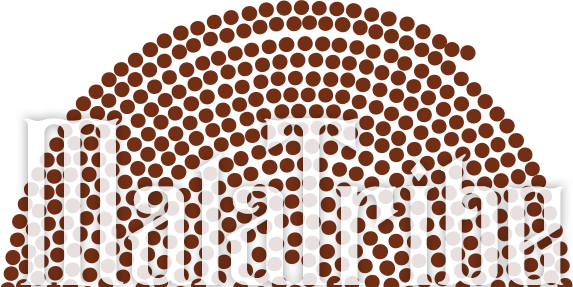“Eat right and exercise” – isn’t that the motto of good health? But what does “eating right” really mean? Experts have strong opinions on this topic, though sometimes they do not align. Nutrition is a fundamental part of our lives so it should be a simple thing to understand. In reality, it is a complex topic that requires research to understand and a plan to implement well into our lives.
If you ask many of us, we would probably say that we’d prefer to eat whatever we want, whenever we want, and as much as we want. There are loads of food options out there, and we each like what we like, right? So why go through the process of learning to eat right and restrict what we want? That sounds like a huge burden and – frankly – a bummer.

The thing is though – even though a lot of food may taste really good, if is not good for us, at some point we will become sick. Sick and probably fat. And though it may not happen overnight, an unhealthy diet will lead to illness and being overweight. No doubt about it. And that is a huge problem and one that is difficult to undo.
So, let’s say we like the idea of being healthy and decide to learn about good nutrition. A challenge here is that there are many opinions about what that means.
One point of view is that we have to count and control the number of calories that we eat. The theory goes that the less calories we consume, the less chance for overeating and we will keep our weight and health in check.

Another theory is that we should reduce fat. The idea is: if we don’t eat fat, we won’t get fat.
Yet another point of view is that if we cut out certain foods and certain food groups from our diet, we will be healthy. Some say no sugar. Some say no processed foods. Some say no carbs. Some say no animal products. Some say no grains.
To give structure to these different points of view, there different diets that people can follow. Each claim incredible results, but studies are starting to show that diets don’t generally work in the long run.
And then there is the multicultural point of view. Global cultures have traditional ways of eating. How do different cultures approach food, and how do genetic differences across cultures influence what good nutrition means?
With all of this different information, what do we do? How do we learn about good food and nutrition in a meaningful way?
In healing and wellness circles, nutrition is one of the most important topics. People who focus on healing and wellness put food right at the center. Eating well supports and maintains strong and powerful bodies. Good food can be healthy and delicious as well as interesting and satisfying. Food can also used as medicine. It contains vitamins and nutrients that people need to function well physically, mentally and emotionally (believe it or not) and changing and improving diets heals many ailments. Food – good food – brings health. Bad food can cause many, many health problems.
To break it down simply, understanding healthy nutrition starts with understanding what food really is.
Modern cultures offer a lot of manufactured “food-like-things” that taste really good and seem like food because they are marketed heavily to us that way. These food-like-things are not found in nature, but are made in for our consumption. These products are frequently enhanced with fat and sugar and salt to make them delicious. Some have additional additives such as synthetic coloring, chemicals, and preservatives to ensure a long shelf life. This stuff is everywhere too. It is served in restaurants and packaged up for us in boxes and bags and plastic and brought to our stores and placed on shelves. The packages have big colorful logos and claim that they are good and healthy and nutritious for us. They are not.

To start simply, learning about nutrition is learning about real food instead. Real food is found in nature: vegetables, fruits, nuts, seeds, meats, fish…things like that. Things our ancestors ate. Our grandparents. People in jungles and villages and tribes. Real food from nature is basically the is the stuff we all need to be eating and is the basic foundation for a healthy nutritional plan.
As simple as it might sound, shifting eating habits can be challenging. It takes planning and dedication. But good nutrition is worth it, because it will maintain and foster good health.
After learning about real food and choosing to eat it, a nutritional plan also requires that we understand different vitamins and nutrients to be sure we get enough of everything. Too much or too little will cause an imbalance. This part of the process also takes some planning, but there is information available about eating real food and creating a balanced eating plan.
Another aspect to consider is where the real food comes from. Real food comes from nature, but considering how it is grown, processed and prepared will also help you understand how healthy it is. Modern innovations have caused a lot of real, and typically healthy food products to be grown and processed in unhealthy ways. Ideally, we will be choosing good foods, grown and processed in well in an eco-friendly manner.
Considering nutrition and reconsidering what you eat can be an interesting process. You will have the chance to learn about food and different ways to prepare it with spices, herbs, and seasonings that will be healthy and delicious. Plus, it will serve your body and your health.
If learning about nutrition is interesting to you, we invite you to explore the topic on our website. There are experts in the nutrition field ready to help you too.


